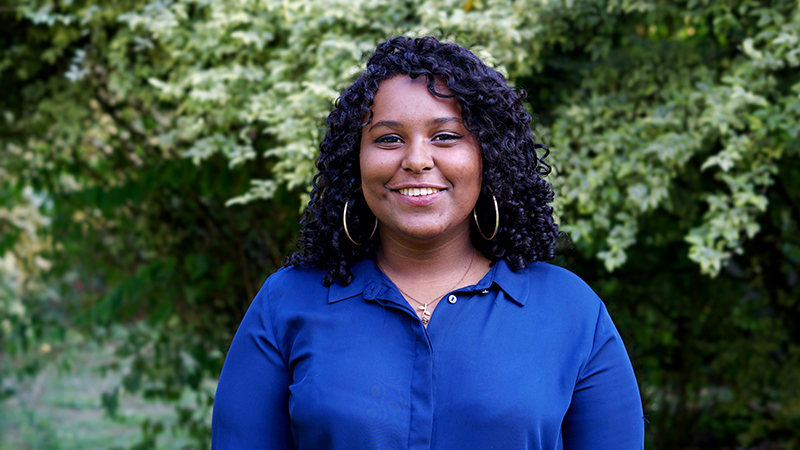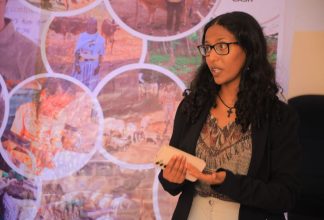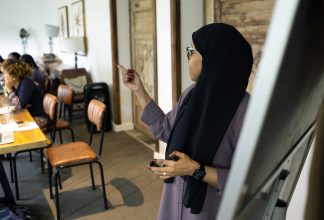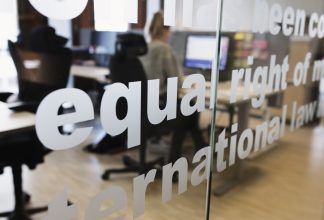Put Your Differences Aside – Maysaa Osama

Across the world, women human rights defenders continue to speak up against human rights violations, and to call for justice, peace, and equality – despite facing immense challenges, including sexual harassment and violence, smear campaigns, and defamation. Meet one of many brave women human rights defenders from Africa.
Maysaa Osama is a 21-year-old Sudanese women’s rights activist, and a student of architecture. At a young age, Maysaa is determined to promote women’s rights and to work for a more inclusive society, while trying to challenge existing power structures.
We asked Maysaa about her work as a woman human rights defender in Sudan. This is what she told us.
Being a woman human rights defender in Sudan
“I have been working with women’s rights since the start of 2019. During that period, I was verbally abused in many situations – by men and women.
I remember a day when we were protesting the laws that harm divorced mothers and widows. We were demanding to create laws that protect these women and children. Many men and women came and said that we are communists – which is considered a curse in Sudan – and that we have no parents or fathers in our homes to keep us on hold.
Whenever we talk about women’s rights, whether it was during the revolution, or generally speaking in the period of the revolution, it was always neglected. People would say ‘don’t talk about women’s rights now, we have problems with the Omar al-Bashir regime’ for example.
I think that women’s rights issues and any other rights come together. You cannot separate one right from another.”
What would you like to say to other women human rights defenders?
“I would like women human rights defenders to be more cooperative with each other, to work together, put their differences aside. At the end of the day, it can be slightly different agendas, but it is the main cause that we are all working with.
Try to create agendas that serve not just centralised women or non-centralised women, try to include women in the zones of conflict, the women who are affected by displacement.
I also want them to be more inclusive of young females; to claim women’s rights activism; to claim feminism. I also want them to, when they collaborate and put their differences aside, come up with an agenda that includes all women.”


